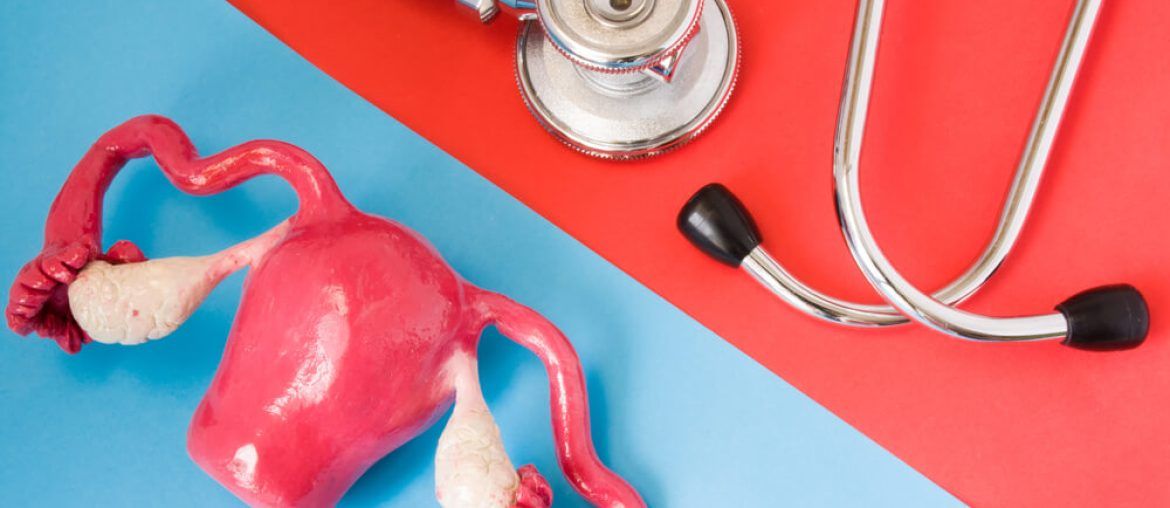Heavy menstrual bleeding, medically known as menorrhagia, is a common concern among women that can significantly impact daily life and overall health. At May-Grant OB/GYN, located in Lancaster, PA, and its surrounding areas, we specialize in diagnosing and treating heavy menstrual bleeding. Our dedicated team offers a range of effective solutions tailored to each individual’s needs, ensuring our patients receive the care and support necessary to improve their quality of life
What is Heavy Menstrual Bleeding?
Heavy menstrual bleeding, referred to medically as menorrhagia, occurs when menstrual periods have abnormally heavy and prolonged bleeding. The prolonged severity of bleeding can lead to severe cramps, longer menstrual cycles, and restrictions of daily activities due to heavy menstrual flow. In severe cases, menstrual bleeding can occur with one pad or tampon an hour over the course of two hours, and in these cases, these symptoms require treatment as they can lead to amenia and severe cramps that require medical attention.
Various conditions can cause heavy menstrual bleeding. Some conditions that can cause this condition include:
- Hormone Imbalances: Hormone imbalance can cause issues between estrogen and progesterone levels, leading to excessive buildups of the uterine lining from the endometrium.
- Ovary Dysfunction: Ovary dysfunction can cause various issues with how the ovaries release eggs. This condition can arise from hormonal imbalances, as they’re often not enough progesterone to release the egg.
- Uterine Fibroids: While most uterine fibroids are noncancerous and painless, some fibroids can cause heavier than regular periods due to their location within the uterine wall.
- Intrauterine Devices: Heavy, irregular periods are often a well-known side effect of intrauterine devices for birth control.
- Bleeding Disorders: Some bleeding disorders can contribute to heavy periods, such as von Willebrand’s disease, which impacts the blood clotting factor of your blood.
- Medications: Some anti-inflammatory medications, hormone medications, and anticoagulants can cause heavy and prolonged periods.
Why Treatment is Necessary
Addressing heavy menstrual bleeding is crucial for several reasons:
- To prevent anemia and related symptoms like fatigue and weakness.
- To alleviate the discomfort and inconvenience associated with heavy periods.
- To diagnose and treat underlying conditions that may be causing the bleeding.
- To improve overall health and well-being.
Treatments For Heavy Menstrual Bleeding at May-Grant OB/GYN
At May-Grant OB/GYN, we can provide a selection of treatment options for your heavy menstrual bleeding, which include:
- Hormonal Contraceptives: Some contraceptives can help regulate heavy menstrual cycles and reduce episodes of prolonged bleeding. Other forms of contraception, such as hormonal IUDs, can release specific progestin types to thin out the uterine lining and decrease menstrual blood flow.
- Hormonal Therapy: Hormonal therapy, such as progesterone therapy, can help correct hormonal imbalances contributing to heavy menstrual bleeding.
- Surgery Recommendations: In cases where heavy menstrual blood flow can not be treated nonsurgically, our team can recommend surgical options for managing your condition, which include:
- Myomectomy: Myomectomies remove the uterine fibroids and can be helpful for those experiencing heavy, irregular menstruation caused by fibroids.
- Endometrial Ablation: This procedure destroys the endometrium lining through laser, heat, or radiofrequency and can help women experience lighter periods but may cause problems with pregnancy later on.

Prevention and Education
While not all cases of heavy menstrual bleeding can be prevented, educating women on recognizing the signs and seeking early treatment is vital. Regular gynecological check-ups play a crucial role in monitoring menstrual health and identifying any issues early.
Outlook
With proper diagnosis and treatment, most women experience significant relief from heavy menstrual bleeding. Our goal at May-Grant OB/GYN is to restore your health and comfort, allowing you to lead a more active and fulfilling life.
Frequently Asked Questions
Q: What is considered heavy menstrual bleeding?
A: Heavy menstrual bleeding is bleeding that lasts more than 7 days or is so heavy that you need to change your pad or tampon more frequently than every 2 hours.
Q: Can heavy menstrual bleeding be a sign of something serious?
A: While it can be a symptom of a treatable condition like fibroids, it’s also important to rule out more serious causes. Early diagnosis and treatment are key.
Q: Are there natural remedies for heavy menstrual bleeding?
A: Some lifestyle and dietary changes may help manage symptoms, but it’s important to consult with our team for a comprehensive treatment plan tailored to your needs.
Q: How long does it take to see improvements after starting treatment?
A: The time frame for improvement can vary based on the treatment method. Some women see changes within the first menstrual cycle, while others may need longer.
Find Relief from Heavy Menstrual Bleeding with May-Grant OB/GYN
Other forms of surgery, including hysterectomies, endometrial resectioning, and uterine artery embolizations, can also provide successful treatment for heavy menstrual bleeding but can also lead to permanent results that impact your pregnancy outlook and future menopause. At May-Grant OB/GYN, our team can help you manage your heavy menstruation symptoms and provide long-lasting relief through treatments available at our office. As Lancaster County’s number one OB/GYN practice, we are here to care for your needs. Contact us at 717-397-8177 to schedule your consultation and take the first step towards a healthier, more comfortable life.


























